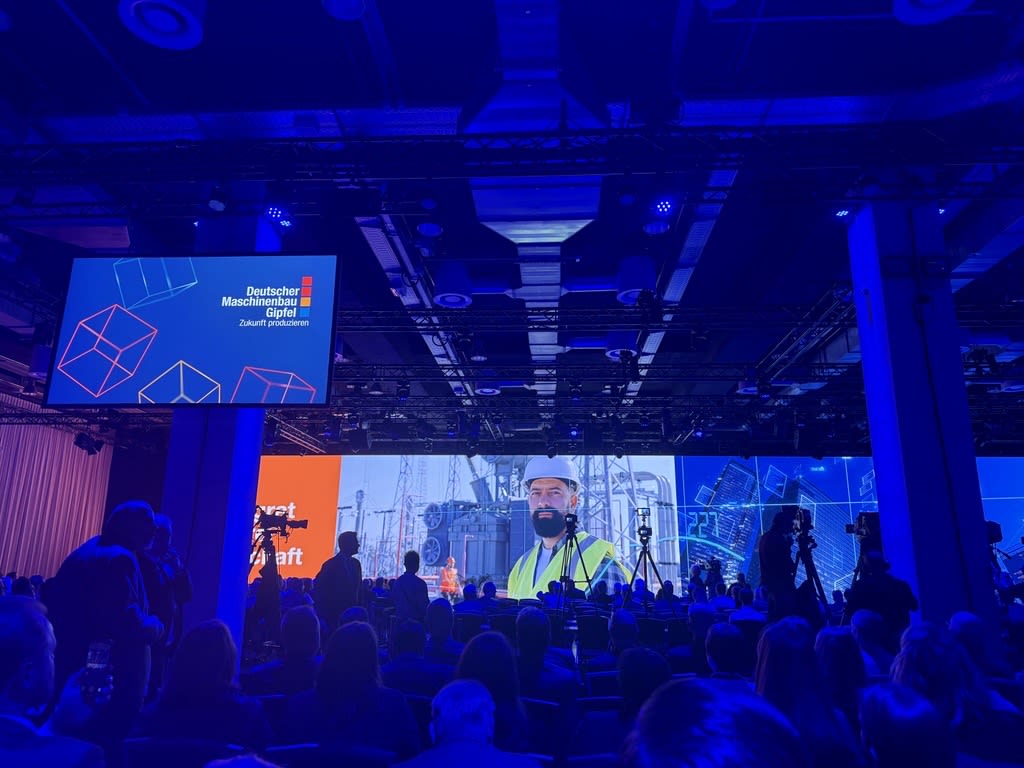
Mechanical and plant engineering sits at the heart of Europe’s industrial success, and German Maschinenbaugipfel 2025 brought together industry leaders to shape the future of mechanical and plant engineering. Europe’s industry remains a global innovation powerhouse, but bureaucracy, tariffs, and labour shortages are slowing momentum. Digitalization opens the door to new opportunities and service-oriented business models.
However, the opportunity is equally significant. A transition is already in progress, from traditional product manufacturing to customer-centric, digitally enabled solutions. The industry is beginning to recognise that future growth depends not on adding more features, but on building ecosystems with continuous customer access, stable revenue streams, and service-driven business models
The industry is shifting from traditional manufacturing to customer-focused, digitally enabled solutions. Future growth won’t come from adding more product features, but from building ecosystems that ensure continuous customer access, recurring revenue streams, and service-driven business models.
Germany’s mechanical and plant engineering sector faces:
• Bureaucracy and high corporate taxes that slow expansion
• Tariffs affecting global competitiveness
• Skills shortages demanding creative solutions
Despite these challenges, companies are investing in digitalization, but projects too often stall without a clear ROI. HMS Networks sees this daily: success depends on pairing technology investments with the proper infrastructure, connectivity, and data strategies that deliver measurable results.
A recurring theme at the event was that complexity does not equal value. Machines are becoming more sophisticated, but customers don't always benefit from the additional features.
Competitive advantage lies in a shift in thinking. Complex machines alone don’t create value. Competitive advantage comes from reliable data, customer access, and scalable solutions. And this is where open ecosystems become crucial. Future business models will be based on software, algorithms, and platforms rather than closed vendor systems. The rise of virtualised production, with controls moving into the cloud, indicates a factory of the future that is increasingly driven by software.
This means data connectivity and interoperability are fundamental for manufacturers, and knowing they can rely on tools to enable this.
For HMS, that looks like an ecosystem including:
• Anybus - for multi-protocol industrial communication
• Ewon - for secure remote access and IIoT integration
• Ixxat - for functional safety machine connectivity
• Red Lion - for edge intelligence and visualization
• N-Tron - for robust connectivity in harsh environments
These solutions help connect machines securely, process data efficiently, and build the platforms required for future-ready business models.
Another key point is how service is often the larger driver of revenue and profit. Yet, it remains underdeveloped, with many companies outsourcing services, missing opportunities to strengthen relationships and generate recurring revenue.
HMS Networks connectivity and edge solutions enable service-oriented models that allow for:
• Remote monitoring to reduce on-site visits
• Predictive maintenance to minimize downtime and enhance customer trust.
• New subscription or performance-based services
This approach protects uptime, strengthens customer relationships, and unlocks recurring revenue streams.
The event made one thing clear: Europe’s industry has what it needs to succeed, but outdated methods must be replaced with bold, innovative thinking.
Mechanical and plant engineering doesn't need to be reinvented. Instead, the focus should be on embracing the bigger picture and recognising that digitalization reshapes entire ecosystems, not just individual products.
HMS Networks helps manufacturers adopt secure networking, edge intelligence, and service-based models to drive growth.
German Maschinenbaugipfel 2025 highlighted both the urgency and the opportunity facing mechanical engineering. Bureaucracy, tariffs, and labour shortages are genuine obstacles. However, these challenges do not determine the future.
The real turning point is digitalisation: open ecosystems, connected machines, and services prioritising customer value. With the right tools and strategies, Europe’s industry can remain a global leader in innovation, competitiveness, and customer-focused growth.
If you want to learn more about how HMS can help you, or learn more about Industry 4.0 and how it is shaping the manufacturing industry, you can download our whitepaper here.